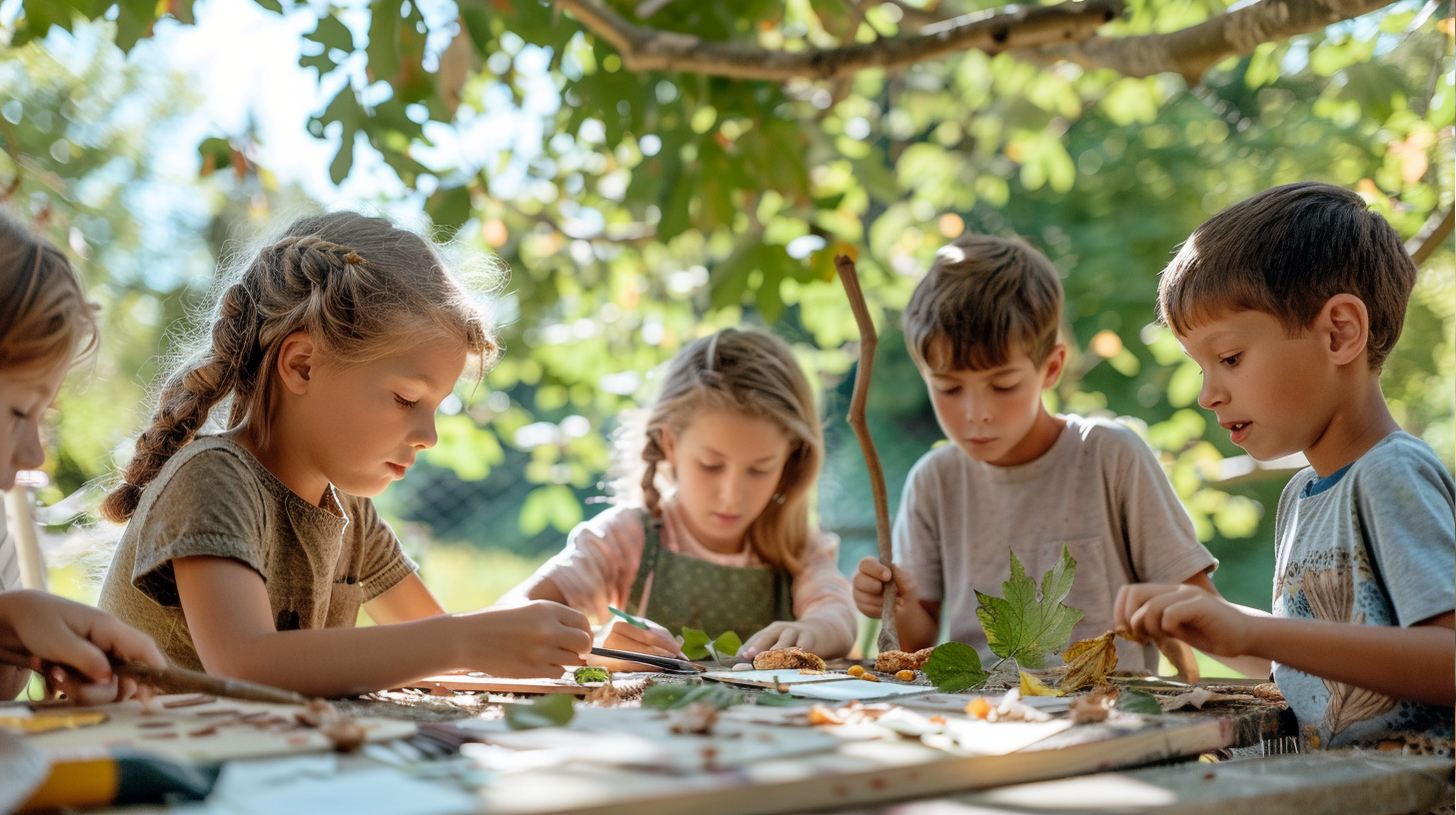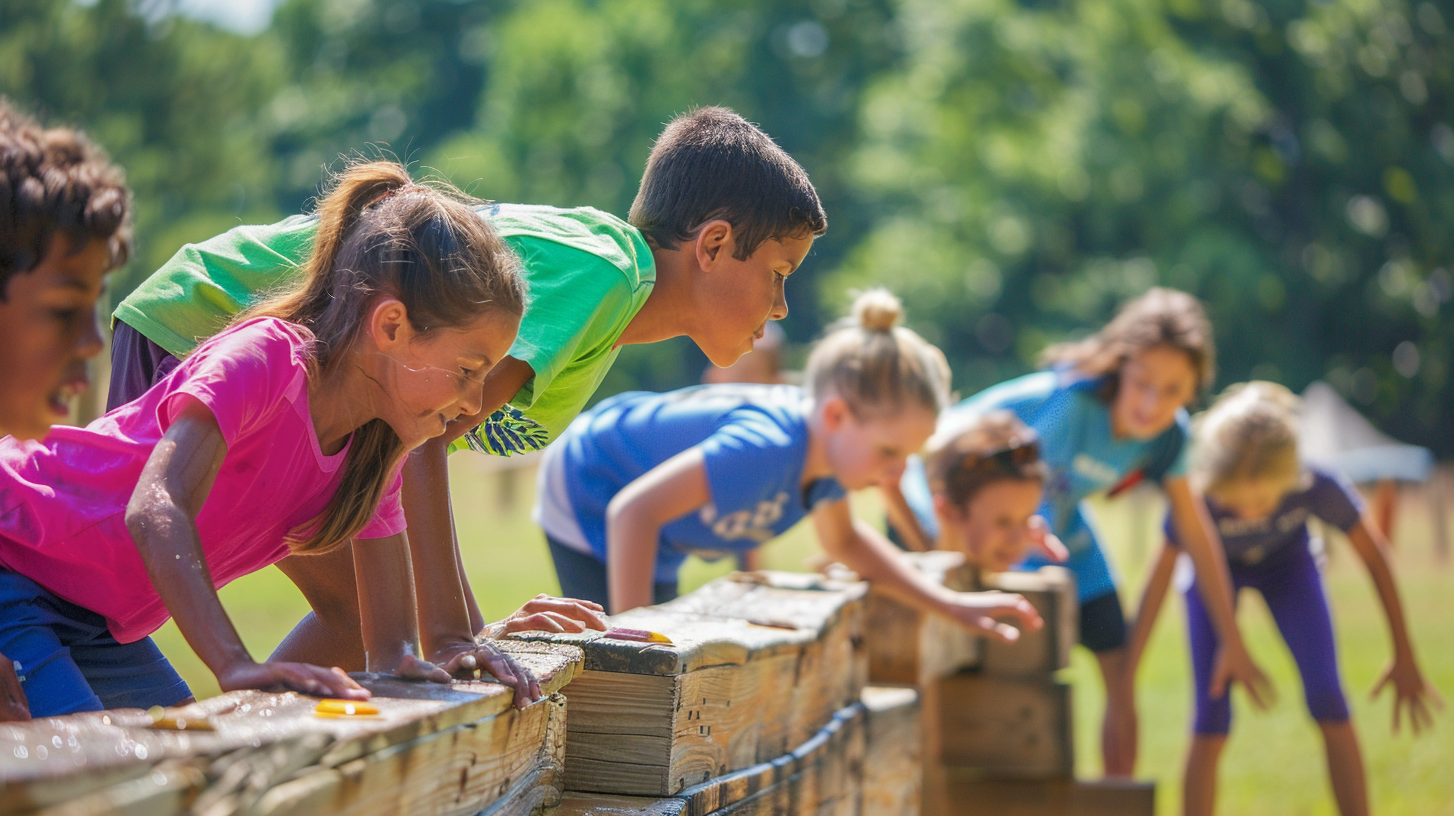Summer is a vibrant season, filled with the excitement of kids attending various day camps, from sports camps to academic ones. Creating an engaging summer camp curriculum is essential, whether you're running a sleepaway camp or a day camp. In this guide, we'll explore effective strategies and innovative ideas that ensure every day is fun-filled and educational.
A summer camp curriculum is more than a schedule of activities—it's a framework that guides the educational and entertainment value offered to campers. Effective lesson plans cater to different interests, integrating everything from sports camp activities to science experiments, promoting problem-solving and communication skills among young campers.
Key Components of an Effective Summer Camp Lesson Plan
An effective lesson plan for a summer camp incorporates clear educational outcomes alongside fun activities. It should balance structured learning with the spontaneity that makes a summer camp exciting. For instance, a day of camp can include a science teacher leading a hands-on camp experiment in the morning followed by an art class that allows kids to express their own story through painting backdrops. The plan should also include flexibility to adapt to the campers’ interests and energy levels, ensuring every week of camp remains engaging. Here are the key elements that constitute an effective summer camp lesson plan:
1. Comprehensive Activity Mix
Incorporate a broad range of summer camp activities to cater to diverse interests, from exciting sports games to creative arts projects and academic enrichment activities. For example, you can engage campers in STEM subjects through hands-on science experiments and encourage creativity in a Digital Design Studio or Fashion Design Studio. Implement themed activities like 'Art from Nature' to inspire art and environmental education.
2. Integration of Technology and Online Resources
Utilize online camps and digital tools to extend the learning environment, especially for providing flexible learning options. You can also incorporate educational technology such as 3D design software to enhance learning.
3. Emphasis on Quality Curriculum Design
Ensure the curriculum meets high educational standards, utilizing resources from reputable institutions such as the Center for Creative Learning and the Institute for Learning Innovation to enhance content quality.
4. Creativity and Storytelling
Create a rich narrative experience with visual storytelling and creative expression, integrating exciting story ideas and character development into activities. Use themes in storytelling to construct daily camp themes that captivate and educate, like constructing an exciting story through role-play or building a story with characters during evening camp sessions.
5. Practical Skills and Innovation
Teach practical life skills and encourage innovative thinking through activities that offer hands-on experience with materials science and design processes. Include sessions in innovation spaces where campers can work on inventive creations.
6. Community and Inclusivity
Build a community-focused environment by incorporating local culture and resources, such as utilizing local Program Team Members to enhance program diversity, or collaborating with local Community Learning Centers to bring community elements into the camp, ensuring campers feel a part of their larger community.
7. Assessment and Feedback
Utilize feedback mechanisms such as daily camper journals and end-of-session evaluation forms to gather insights and adjust the curriculum dynamically.
These strategies ensure that a summer camp lesson plan is not only comprehensive and educational but also dynamic and responsive to the needs of the campers. By focusing on these key components, camp directors can create enriching environments that balance fun and learning, making every day of summer camp a rewarding experience.
Example Summer Camp Curriculums for Inspiration
Planning a memorable and impactful summer camp involves careful thought and creativity. In this section, we have listed several examples of week-long thematic curriculums across various domains such as Science and Discovery, Art and Design, and Adventure and Sports. These examples are designed to spark ideas and offer a framework that camp directors might adapt or expand upon. Each curriculum includes a variety of activities that encourage learning, creativity, and physical engagement, aiming to inspire your own unique camp planning efforts.
Science and Discovery Camp Curriculum

Objective: Dive into the wonders of science with experiments, discussions, and hands-on projects that illuminate the natural and physical sciences.
Day 1: Introduction to Basic Science
- Morning: Teacher-led demonstration on basic scientific principles using a simple volcano eruption experiment (baking soda and vinegar).
- Afternoon: Hands-on experiments where campers create their own mini volcanoes.
- Benefits: Introduces scientific inquiry, demonstrates chemical reactions.
Day 2: Physics and Engineering
- Morning: Exploration of physics through egg drop experiments; campers design protective casings for eggs using limited materials.
- Afternoon: Building simple machines like pulleys and levers from kits.
- Benefits: Teaches basic physics concepts and encourages engineering thinking.
Day 3: Environmental Science
- Morning: Guided nature walks to collect samples and observe ecosystems.
- Afternoon: Microscope lab session to examine collected specimens.
- Benefits: Promotes ecological awareness and observation skills.
Day 4: Technology and Coding
- Morning: Introduction to coding using simple block-based coding platforms.
- Afternoon: Campers create a basic game or animation related to environmental themes learned.
- Benefits: Develops digital literacy and problem-solving skills.
Day 5: Science Fair
- All Day: Preparation and presentation of a project or experiment developed during the week.
- Benefits: Reinforces knowledge, enhances presentation and communication skills.
Art and Design Camp Curriculum

Objective: Explore various art and design techniques, focusing on creativity, expression, and artistic skills through diverse media.
Day 1: Exploring Art Mediums
- Morning: Introduction to different art mediums (painting, sculpting, drawing).
- Afternoon: Campers choose a medium and create a themed project.
- Benefits: Stimulates creativity, introduces various artistic tools and materials.
Day 2: Nature and Art
- Morning: Nature walks to gather materials and inspiration.
- Afternoon: Creating art using natural materials (e.g., leaf prints, stone sculptures).
- Benefits: Encourages environmental appreciation, enhances fine motor skills.
Day 3: Digital Art and Design
- Morning: Basics of digital design using a simple graphic design tool.
- Afternoon: Designing digital posters or simple animations.
- Benefits: Cultivates digital design skills, introduces elements of graphic design.
Day 4: Fashion Design
- Morning: Workshop on basic sewing and fabric arts.
- Afternoon: Design and create a simple piece of clothing or accessory.
- Benefits: Teaches sewing skills, fosters fashion design creativity.
Day 5: Art Showcase
- All Day: Preparation and exhibition of the week's art projects; interactive gallery walk.
- Benefits: Builds confidence, provides a platform for artistic expression.
Adventure and Sports Camp Curriculum

Objective: Promote physical health, teamwork, and an appreciation of outdoor activities through engaging sports and adventure-based challenges.
Day 1: Team Building and Sports Introduction
- Morning: Ice-breaking games and introduction to various team sports.
- Afternoon: Round-robin sports matches (e.g., soccer, basketball).
- Benefits: Enhances physical fitness and teaches sportsmanship.
Day 2: Adventure Challenge
- Morning: Obstacle course setup and safety briefing.
- Afternoon: Teams compete on the obstacle course.
- Benefits: Encourages physical health, teamwork, and strategic thinking.
Day 3: Water Day
- Morning: Safety training and introduction to water sports (kayaking, canoeing).
- Afternoon: Water races and team water games.
- Benefits: Teaches water safety and promotes physical fitness.
Day 4: Outdoor Survival Skills
- Morning: Basic survival skills workshop (fire building, shelter making).
- Afternoon: Practical application in a supervised survival challenge.
- Benefits: Develops practical skills and problem-solving abilities.
Day 5: Sports and Adventure Recap
- All Day: A tournament or a team-based adventure race that incorporates elements from the entire week.
- Benefits: Reinforces skills learned, celebrates teamwork and achievement.
Tools and Resources for Summer Camp Planners
To effectively manage and deliver an enriching summer camp experience, camp directors need access to a variety of tools and resources.
Registration and Management
Pembee is an easy-to-use summer camp management software. It helps manage your camp registration process digitally, supports installment plans for payments, and reduces time on admin tasks, so that you can focus on delivering the best camper experience.
Educational Content and Curriculum
PBS LearningMedia: Offers a wealth of free, pre-K-12 educational resources and lesson plans for camps. Visit PBS Learning Media.
Journal of STEM Outreach: Provides insights and research into STEM education, useful for incorporating science, technology, engineering, and math into camp curriculums. Visit the Journal of STEM Outreach.
Activity Supplies and Kits
Discount School Supply: A source of affordable educational supplies that are perfect for art, science, and other camp activities. Visit Discount School Supply.
Nature-Watch: Provides educational products and craft kits that align with nature-themed camp activities. Visit Nature-Watch.
Staff Training and Development
American Camp Association (ACA): Offers extensive resources for training camp staff and ensuring high standards in camp operation and safety protocols. Visit ACA.
Conclusion
An exciting summer camp curriculum offers both fun and learning in a balanced environment. With the right tools and creative ideas, you can ensure that your summer camp business thrives, providing campers with a quality experience that’s educational and enjoyable.